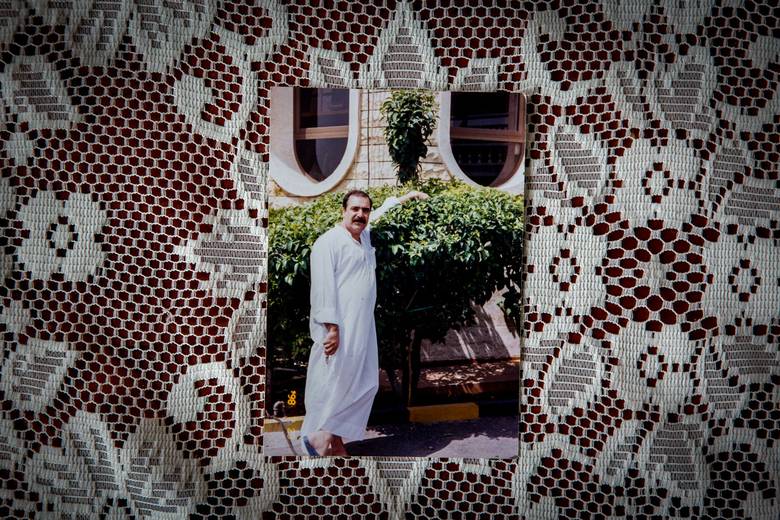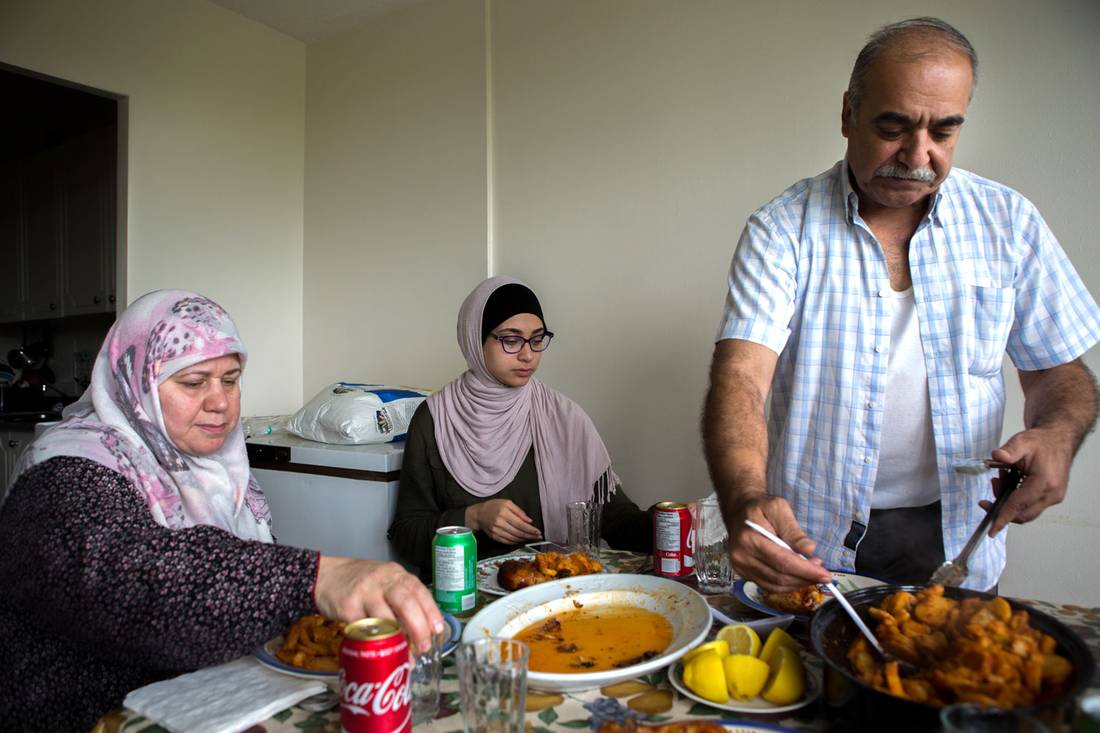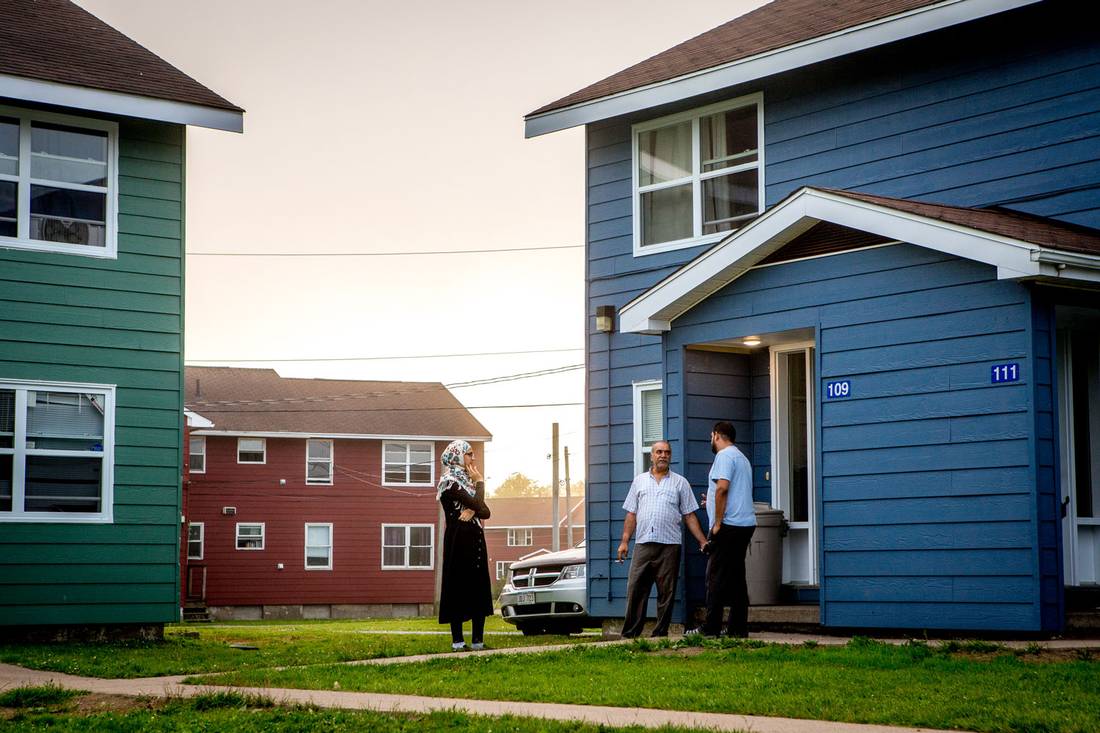(The Globe and Mail)- At 2 a.m. in the midst of Ramadan in 2012, Mohamed Sharbaji got a call from a neighbour of his Aleppo home: “There are men with guns in your house.”
In the moment before that conversation, Mr. Sharbaji was a man of influence. A former business owner and land developer, he’d spent 15 years as an elected mukhtar (roughly, mayor) of his Syrian neighbourhood.
On many late nights, his constituents would bang on his door looking for counsel. He headed a large family and was renowned for his singing voice. He enjoyed the remarkably full life of a man in his prime.
In the moment after he got off the phone, all that had ended.

First, they took his possessions. His family’s properties were occupied by other “men with guns,” including the farm where the family was staying when the call came. Mr. Sharbaji doesn’t know who ruined his life. In the chaos of war, the regime, rebels and criminals were indistinguishable. He was robbed of his remaining valuables during a panicked escape from the country.
Next, they took his security. The Sharbajis made their way to Cairo, but were threatened there as well. People would not believe he was penniless. He spent four fearful years in Egypt.
Finally, they took his support. The most vulnerable Sharbajis – Mohamed; his wife, Mouna; his 90-year-old mother, Fakhira; and his youngest daughter, 16-year-old Sedra – were invited to Canada as refugees and sent to the Maritimes. Mr. Sharbaji was told his adult children and their families would follow in 15 days. That was 17 months ago.
Mr. Sharbaji, 62, sits in the living room of his Saint John apartment, trying to explain how this happened. His life is confined to this small, airless berth. There are no adornments. There’s a TV showing Syrian soap operas and mismatched sofas given as charity.

Mr. Sharbaji cannot work or leave home for long. His mother has Alzheimer’s and needs constant attention. His wife is constantly ill, as is he. He’s learned no English and cannot talk with his neighbours. The only point of access to his shrunken world is his daughter, who has picked up the language quickly.
“Your father is a family’s strength,” Sedra says. “But here, the children are in charge.”

Mr. Sharbaji is a warm, formidable presence as you meet him, limpid blue eyes set in an expressive face. Since many Canadians can navigate the initial courtesies in Arabic – “ As-salaam-alaikum,” “Wa-alaikum-salaam” – he is sure-footed for an instant. Then, when a conversation should start but cannot, he is defeated. He spends his time perched on a corner of the couch, smoking, while the women busy themselves about him.
When he arrived along with thousands of his countrymen, Mr. Sharbaji wanted to build a business district, a sort of Little Syria. He had plans and experience. But the effort fell to infighting.
Many things now make him cry – talk of his absent family, the son trapped in Damascus, his former life, his future. He’s saved a few photos. One shows him in a jaunty pose of officialdom, tie askew. It was taken six years ago. Mr. Sharbaji looks decades younger. He would like to sing for us, but first he has to find his teeth.
“I don’t miss the money,” he says. “I miss happiness. Happiness is food for the soul.”
The family earns about $1,900 a month in welfare and subsidies. Mr. Sharbaji lists his expenses – $508 for rent, $142 for the dentist, $225 each month for Fakhira’s diapers. He brings out a folder containing every receipt from every purchase he has made here – receipts he cannot read.
When someone notes that he is organized, Mr. Sharbaji mutters, “I wasn’t like this before.”
His children in Egypt used to send money, but no longer can. He owes $1,642 on one credit card and can only afford the minimum payment. At this rate, his debt will be repaid in 16 years.
Some days he takes Fakhira to the church next door and wheels her about the parking lot, picking wild flowers. Other evenings, he climbs a hill across the street and stares down into the harbour. What is he thinking about?
“East to west,” he sighs, an Arabic idiom for “everything.”
What comes next?
Mr. Sharbaji shrugs: “I want to contribute. But I have been here one year and a half and I have not moved one centimetre forward. I could explain this to you for days, but you cannot feel it.”
He obsesses about bringing his children here, but like “the men with guns,” he does not know who controls his family’s fate or how they might be located or parleyed with.
He can go to the store, but cannot navigate it alone. At the entrance to Costco, he takes out every card in his wallet and presents each of them to the greeter until he stumbles upon the correct one. At the cash, he steps away, trying to look supervisory as Sedra speaks.
The last place he has some semblance of authority is at the mosque. He is one of the few on a Friday who takes care to wear an immaculate dishdasha. He arrives early and sits in front.
“Remember to always leave your businesses, leave your work and come to Friday prayers,” the imam gently scolds latecomers.
















Comments About This Article
Please fill the fields below.